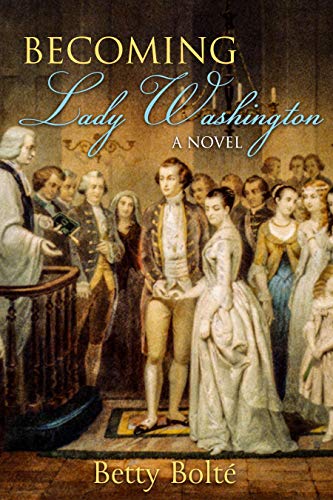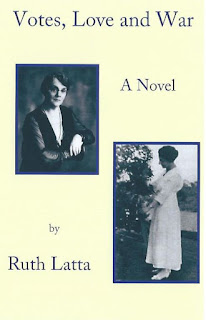 River Aria is an exquisitely written conclusion to the Rivers trio. Schweighardt creates rich layers of meaning through the three books, across settings that are sometimes sumptuous and sometimes desolate, but always rich in psychology, history, drama, theatre, and a very subtle political thread that hints at the power of compassion.
River Aria is an exquisitely written conclusion to the Rivers trio. Schweighardt creates rich layers of meaning through the three books, across settings that are sometimes sumptuous and sometimes desolate, but always rich in psychology, history, drama, theatre, and a very subtle political thread that hints at the power of compassion.
Tag: historical fiction
A review of Mammoth by Chris Flynn
 Most of the human characters in the book are real, and an attempt to bring back the Wooly Mammoth is happening, as detailed in the “Epilogus hominum” in order to try and slow global warming. Flynn does a stellar job of bringing together fantasy and history and Mammoth is a joy to read. The book is a cautionary, bold, loving and instructive tale that is mostly historically accurate, always funny, and often poignant.
Most of the human characters in the book are real, and an attempt to bring back the Wooly Mammoth is happening, as detailed in the “Epilogus hominum” in order to try and slow global warming. Flynn does a stellar job of bringing together fantasy and history and Mammoth is a joy to read. The book is a cautionary, bold, loving and instructive tale that is mostly historically accurate, always funny, and often poignant.
A review of Becoming Lady Washington by Betty Bolté
 Reading Becoming Lady Washington, one feels a little like Elizabeth Bennet in Pride and Prejudice (published 1813) when she first sets eyes on Mr. Darcy’s palatial home and vast landholdings. Martha’s lifestyle on her first husband’s estate and then at Mount Vernon was similarly luxurious.
Reading Becoming Lady Washington, one feels a little like Elizabeth Bennet in Pride and Prejudice (published 1813) when she first sets eyes on Mr. Darcy’s palatial home and vast landholdings. Martha’s lifestyle on her first husband’s estate and then at Mount Vernon was similarly luxurious.
A review of Walking in the Shadow by Carmen Radtke
 It is the clever detailing of life on the Island, and of leprosy, that makes this book so very engaging. Three men alone, with only occasional visits, making their own entertainment, caring for one another, knowing that two of them will never escape the Island unless it’s to go to another leper colony… Yet Carmen makes these men and their lives fascinating. There is real love here; gentle, unselfish, sometimes hard-tried love.
It is the clever detailing of life on the Island, and of leprosy, that makes this book so very engaging. Three men alone, with only occasional visits, making their own entertainment, caring for one another, knowing that two of them will never escape the Island unless it’s to go to another leper colony… Yet Carmen makes these men and their lives fascinating. There is real love here; gentle, unselfish, sometimes hard-tried love.
A review of Votes, Love and War By Ruth Latta
 Although primarily a work of fiction, Votes, Love and War is grounded in actual historical events and personalities. For example, Frances Beynon and Lilian Thomas (née Beynon) were prominent writers and suffragists in Winnipeg in the prewar and war years, speaking at public events, founding organizations such as the Political Equality League, and publicizing such injustices as the exploitation of women at work in the factory and on the farm.
Although primarily a work of fiction, Votes, Love and War is grounded in actual historical events and personalities. For example, Frances Beynon and Lilian Thomas (née Beynon) were prominent writers and suffragists in Winnipeg in the prewar and war years, speaking at public events, founding organizations such as the Political Equality League, and publicizing such injustices as the exploitation of women at work in the factory and on the farm.
A review of Halcyon Days by Susan Taylor Meehan
 Meehan includes details that capture the atmosphere of Depression-era Saskatchewan: homemakers’ clubs and farm organizations; bank foreclosures and farm auctions; indebtedness to the general store; relief shipments from Eastern Canada, and lack of books in the schools.
Meehan includes details that capture the atmosphere of Depression-era Saskatchewan: homemakers’ clubs and farm organizations; bank foreclosures and farm auctions; indebtedness to the general store; relief shipments from Eastern Canada, and lack of books in the schools.
A review of Gifts for the Dead by Joan Schweighardt
 Though it’s a fine sequel, Gifts for the Dead can be read on its own. Schweighardt does a wonderful job of weaving the first book through the narrative subtly, picking up and expanding on some of the themes of the first book: family ties and the sometimes wrought bond between siblings, the enduring nature of trauma and recovery, and the impact of greed on all that is precious in this world.
Though it’s a fine sequel, Gifts for the Dead can be read on its own. Schweighardt does a wonderful job of weaving the first book through the narrative subtly, picking up and expanding on some of the themes of the first book: family ties and the sometimes wrought bond between siblings, the enduring nature of trauma and recovery, and the impact of greed on all that is precious in this world.
A review of Kick Kennedy’s Secret Diary by Susan Braudy and The Kennedy Debutante by Kerri Maher
 Readers attracted by the Kennedy name will find that, of the two novels,Kick Kennedy’s Secret Diary by Susan Braudy is the more risque and sensational. Readers who want a love story should choose Kerri Maher’s The Kennedy Debutante. Those seeking an historical novel about a woman breaking free of convention and achieving things through her own hard work should look elsewhere.
Readers attracted by the Kennedy name will find that, of the two novels,Kick Kennedy’s Secret Diary by Susan Braudy is the more risque and sensational. Readers who want a love story should choose Kerri Maher’s The Kennedy Debutante. Those seeking an historical novel about a woman breaking free of convention and achieving things through her own hard work should look elsewhere.
A review of The Frozen Dream by Edward James
 Some parts off the story follow history closely. The author, Edward James, knows this period well. HIs descriptions of the boats, their crews, and the historical settings are fascinating. The book also describes the real life and death of Richard Chancellor, a historical figure who stumbled into Ivan the Terrible’s court and became the first English diplomat to Russia. The other character, Arthur, is fictional, but his side of the story gives life to the nomadic tribes, the Sami people, who are too often left out of history but whose lives and customs remain unchanged since the dawn of time, even until today.
Some parts off the story follow history closely. The author, Edward James, knows this period well. HIs descriptions of the boats, their crews, and the historical settings are fascinating. The book also describes the real life and death of Richard Chancellor, a historical figure who stumbled into Ivan the Terrible’s court and became the first English diplomat to Russia. The other character, Arthur, is fictional, but his side of the story gives life to the nomadic tribes, the Sami people, who are too often left out of history but whose lives and customs remain unchanged since the dawn of time, even until today.
A review of Before We Died by Joan Schweighardt
 Though Before We Died is a fictional story, full of intrigue, mystery, and a driving plot that makes it very readable, it is also built around real events as described in the prologue, particularly the catastrophic impact of the rubber boom on some areas of the Amazon, ecologically and in terms of the impacts on the native tribes. The book also confronts issues like racism, exploitation, slavery, and rampant colonialisation, seamlessly integrating the universal into this particular story in a way that feels natural
Though Before We Died is a fictional story, full of intrigue, mystery, and a driving plot that makes it very readable, it is also built around real events as described in the prologue, particularly the catastrophic impact of the rubber boom on some areas of the Amazon, ecologically and in terms of the impacts on the native tribes. The book also confronts issues like racism, exploitation, slavery, and rampant colonialisation, seamlessly integrating the universal into this particular story in a way that feels natural